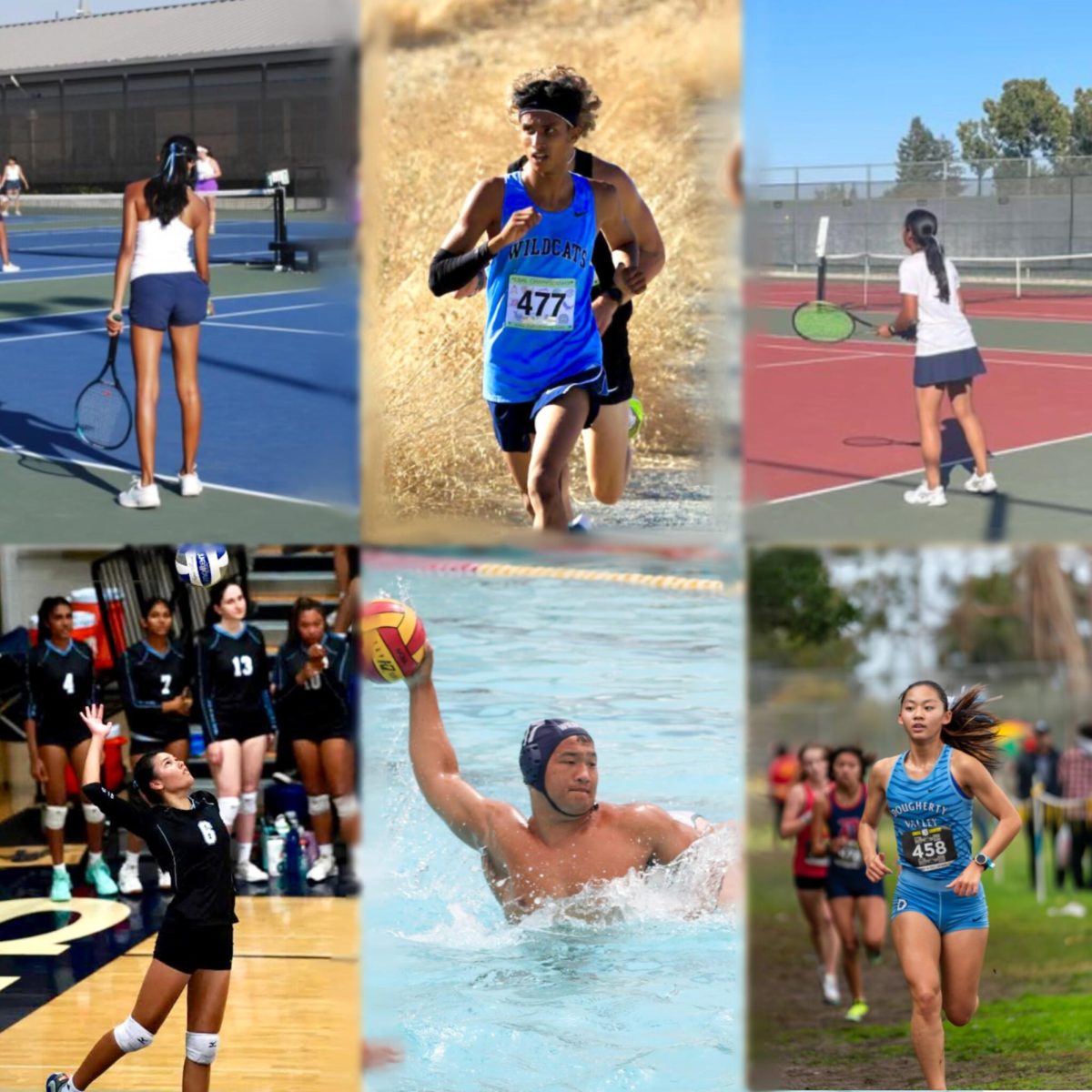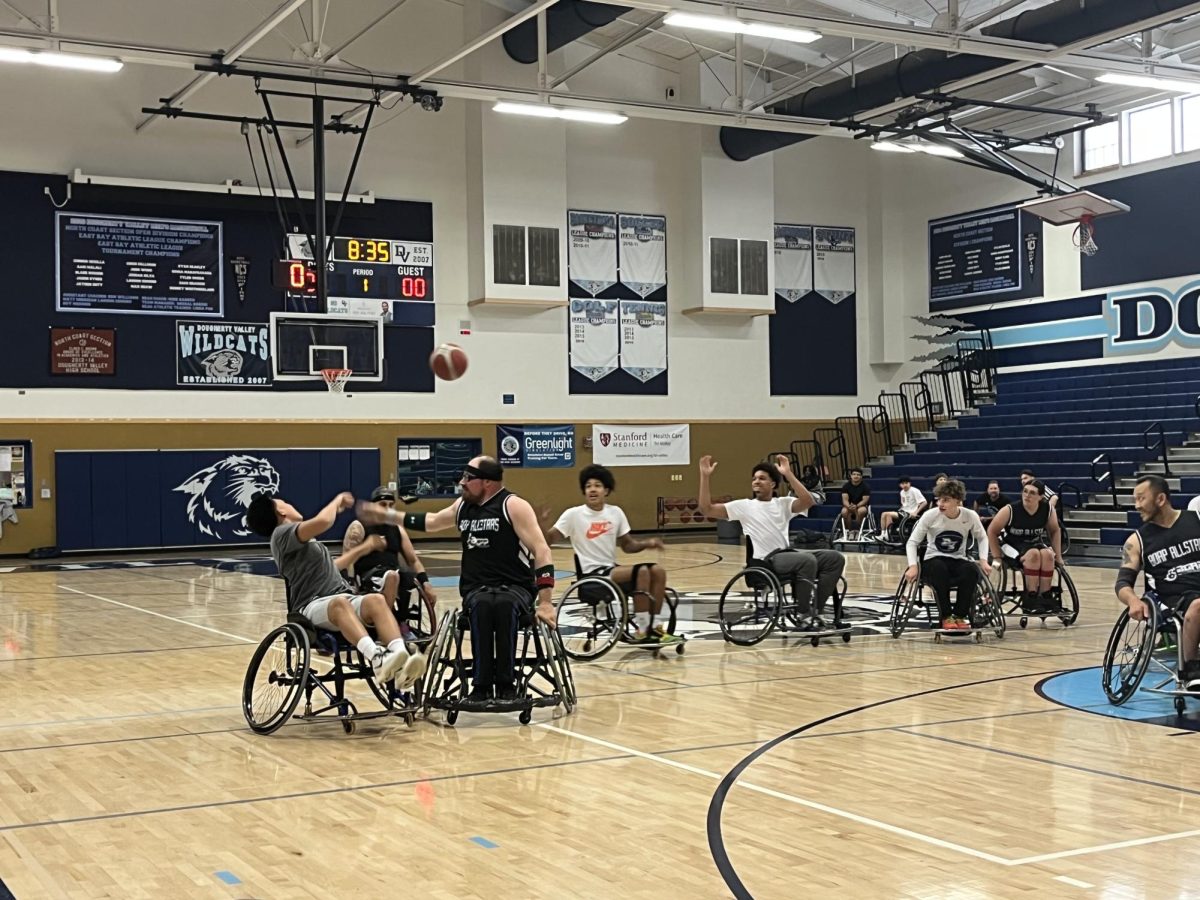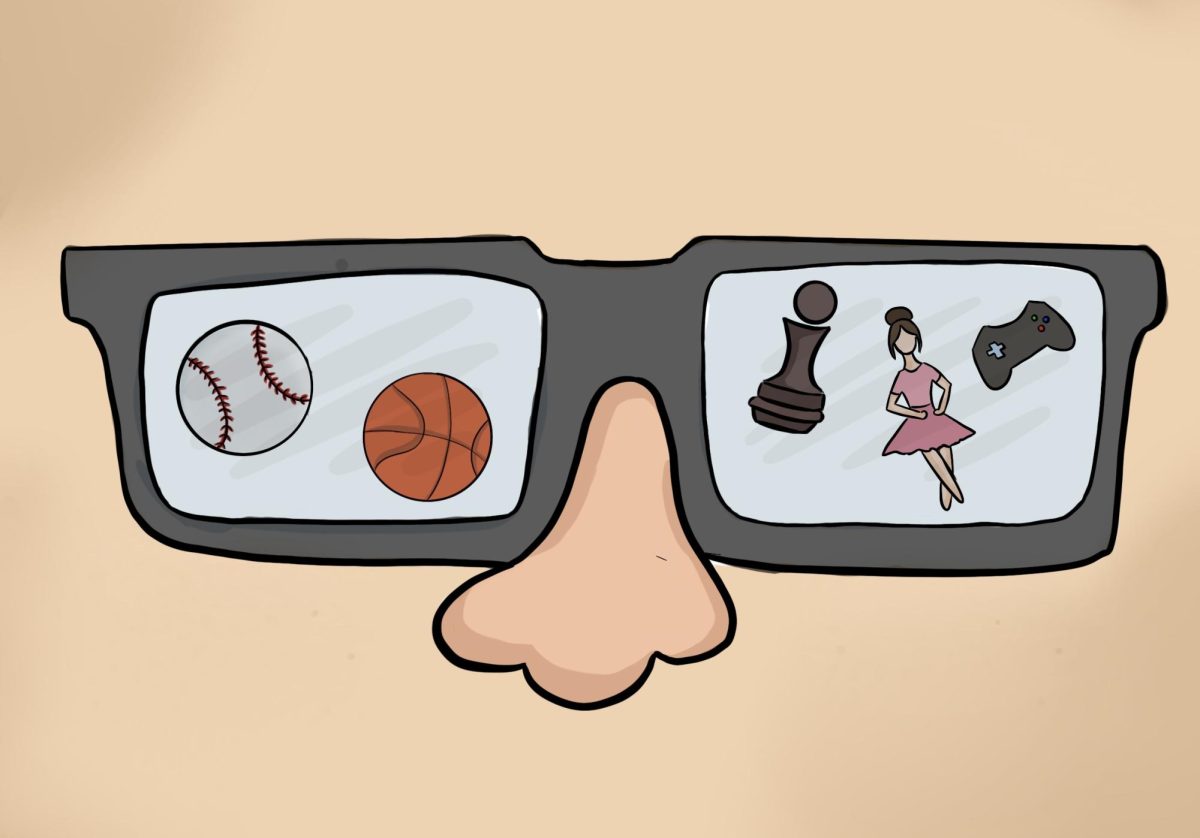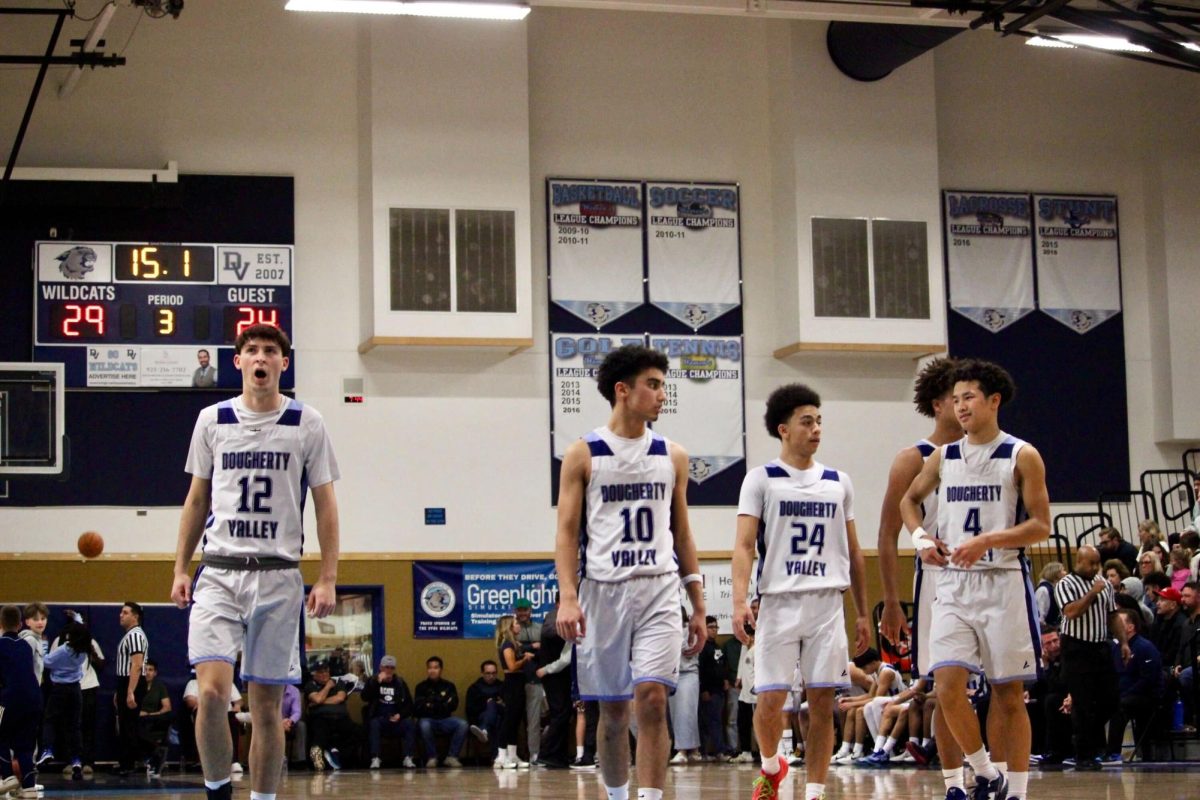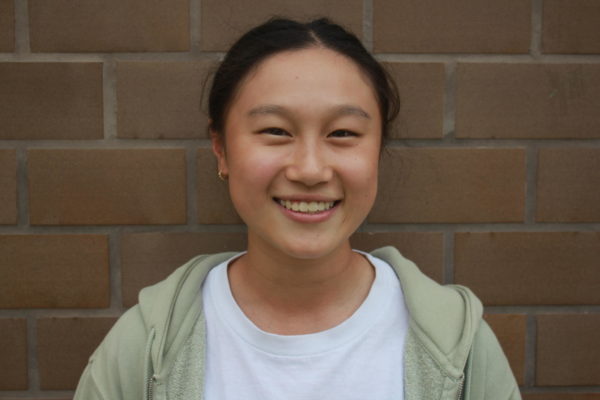The 2023-24 fall sports season ended successfully for Dougherty Valley High School, with fourteen students across different sports earning the titles as All-League Athletes.
While these athletes may have different training plans and paths to success in their sport, they all share the same joy: their love for their sport. Without this passion, there’s no drive to continue training and constantly improving in every competition.
Senior athlete Liana Lee was named East Bay All-League Player of the Year in 2023 for cross country. Running two to three times a day for every single day of the week and averaging about 60 miles a week, Lee found herself keeping up with this intense training schedule throughout the season due to her love for running.
“I took maybe three days off of running completely this whole season [over] a span of three and a half months,” Lee said. “I really love the sport and because of that, I’m really dedicated to it.”
Similarly, senior Kyle Chun, a two-time All-League athlete, explained how his commitment to water polo can be seen through his hardcore training. During the off-season, he trains four days in water and lifts weights focusing on various parts of the body to keep himself in good condition. Many other water polo athletes follow the same training plan, but Chun adds an extra step to his training.
“Coach creates a training plan for our season work for the club, but I do extra stuff by myself because I enjoy it, and it’s a good outlet to relieve stress,” he explained.
The extra training includes weightlifting, cardio and swim practice on his own. Chun’s love for his sport is how he endures the rigor of his training without burning out.
“I feel like it’s important to really like something or else you’re not going to be able to put as much effort and give it [your] 100%. You’ll get really good [at] something if you really love it,” he said.
Like Chun, many athletes train outside of school on their own time as well. Freshman Komal Gaur, one of the two All-League athletes in women’s tennis doubles at DV, described how she trains with her father no matter the time of day.
“We usually go whenever he’s free [in] the evenings. I also play a lot whenever we have any [school] break,” Gaur said. “We do a lot of drills on court but even off court, like in the morning, we’ll go for runs.”
Gaur’s tennis partner, freshman Arshea Lankalapalli, who also made All-League this season, trains everyday with her father. She also follows flexibility and injury-prevention routines to augment her training schedule.
“[During training] I stretch a lot to prevent injuries because I’ve had quite a few. I jump rope as well. My coach said it helps more with movement and agility,” Lankalapalli explained.
Many athletes expressed that even with tough training, the key for the results to show is through consistency. Keeping up with the training while still allowing time for rest is important for steady improvement.
Junior Noor Braganza, who made All-League this season, believes what sets him apart from other cross country athletes is his hard work to train consistently.
“I’m constantly motivated and always willing to work. Sometimes I’d just be training alone [and] nobody’s with me, but I knew it was good for me,” he said. “It’s going to make me go to better places.”
Braganza advises other aspiring athletes to do the same.
“To perfect my sport, [you need] dedication and consistency. Follow a training plan and [stick] with it,” he said.
Lee agreed with her teammate.
“Consistency and improvement are linked [together]. I used to not be a consistent runner. I would skip days [and when] I [didn’t] feel like running, I just wouldn’t. But once I started figuring out my goals, I [was] like I want this [specific] time so I’m going to do this,” Lee continued. “Now that I’m more consistent I can see [immediate] improvement.”
Aside from physical training, athletes allocate time to also prepare mentally for competitions. Whether it be strategizing their course of actions and thoughts while on the playing field, reflecting on past tournaments or writing positive affirmations before the game, many athletes believe mentality plays a significant role in excelling at their sport.
“Practice is really important. In fact, it’s more important than the game because that’s going to come off in your performance,” Chun said. “If you’re doing something in practice, [your reaction] should [become] a habit [to] behave a certain way or do a certain action when something else happens.”
Repeating the same mindset used in competition during practice will help athletes deal with the pressure. Chun practices his mental game for competition so he can compete with more ease.
“In the game it’s a similar mindset, but if you do it well enough in practice, you shouldn’t have to think [too hard] about it [during the game],” Chun explained.
For Lee, her mental preparation begins with visualizing the race before running, helping her determine the pace she should be at during the competition.
“We have this exercise where you take an orange and peel it with your eyes closed. And you know how to do that. It’s a confidence booster,” Lee said. “You know how to run the race. You’ve done all this training. All you have to do is just do it.”
Lee further explained how she sticks to that simple plan even during practice to block out any distractions. This means not focusing on the outcome since that can hinder an athlete’s performance.
“Having a time goal [feels] daunting. When I [didn’t] hit [the time] during the races, it took a big toll on my mental because I was like why? I’m doing the workouts that I need. So I don’t really want to have such a concrete number. During training I just want to make sure I feel good,” Lee continued. “I use a watch [and it] tells you all the statistics like how many miles you run your pace [or] your heart rate. Sometimes I get a little sucked up [by] the statistics, but you [need] to remember [that] you’re more than the numbers. That’s why I like going by effort instead of pace for workouts.”
To Lee, what matters more than the outcome is the feeling. For most athletes, after building a certain amount of experience in their sport, they come to a point where they can understand how well they did just by feeling and not rely on numbers to indicate their level of performance.
“[I know] when runs are too hard or don’t feel hard enough. Finding that balance and putting the work in [is] going to show later,” Lee said. “Since [in] cross country we do a lot of the same courses that we did [last year], I just want to see improvement. I’m really happy when I’m able to get a new personal best [or] place, but that’s just an added bonus. Really, I’m competing against myself. [I’m] always trying to do better than what I did before.”
Although many have been doing their sport for several years, it’s natural for athletes to still feel anxious before competition. Because of this, doubt can also be a contributing factor in nerves so no matter the level of professionalism in the sport, it’s always important to focus on building confidence and trusting their abilities to perform well.
Lee has been running since middle school, but she still feels nervous about the races.
“I [would think], how am I going to get out there because sometimes you can get boxed in at the beginning,” Lee shared. “[I also think about] where’s the best place [to step] so I don’t trip in the grass or fall on my face or people don’t cut me off on a turn. Once people are in front of you, it’s harder to get in front of them without running more distance.”
For an optimal performance even with nerves, sophomore Violet Bothwell explained how making goals on how to be more confident helped her win the All-League title in volleyball this season.
“Sometimes I get scared to make mistakes and that really affects how the team plays as a whole because one person can impact the whole team,” Bothwell said. “My goals are mainly about becoming more confident and not being[ing] afraid to make mistakes.”
To overcome her fears, Bothwell keeps a positive mindset and focuses on what she can improve.
“I try embracing [that] it’s okay to make mistakes and be energetic around my other teammates,” she said.
Being playful and easygoing to lighten the mood in high pressure settings is what keeps Bothwell and her teammates excited and inspired to do their best at competitions.
“I [like to] joke around for the vibe to be more positive around the players I’m with. [I’m] less serious but still competitive,” she said. “It’s [really about] being positive and giving it your all.”
Meanwhile, Lankalapalli described her tendency to be pessimistic despite being able to stay patient and control her emotions, which prevents her from performing as well as she could’ve.
“I’d say I’m pretty strong mentally [but] I have a pessimistic mindset, so I try not to think about the worst that can happen in matches and instead, think about the best,” she expressed.
Like Bothwell and Lankalapalli, Chun also commented on the difference between reflecting on mistakes but not dwelling on them.
“If you mess up, don’t let it stay in your head. It’s important to learn from your mistakes and not make them again. At the same time, if you continue [thinking] about [how you] messed up, it’s not really constructive. You’re just losing positivity, which never helps,” he warned.
As an athlete part of a team rather than an individual sport, Chun stressed the value of accepting and letting go of your mistakes as well as your teammates.
“For players that are good, they need to come in with an open mind and be okay with some teammates making mistakes. You shouldn’t focus on your teammates’ performance and just focus on your [own] performance because that’s what really matters. You can’t really control how they play. You can only control how you play,” Chun advised. “At the end of the day, if you’re playing up to a certain level, your teammates will have to match that, so you will both get better if you focus on yourself.”
Gaur also pointed out that encouraging her teammates no matter the outcome could improve their overall results. Her teamwork with Lankalapalli ultimately determines the success of their tennis matches.
“We work together well because we know how we need to play in different situations so there’s a lot of diversity,” Gaur described. “If I’m getting angry in a game, [Lankalapalli] will know how to calm me down. We support each other really well during the game, which is how doubles should be.”
Furthermore, athletes not only train their thought processes before the competition, but also while they’re in action. For Lee, she prefers not to dwell on what could go wrong while she’s racing. Rather, she only thinks of motivation that will keep her going in the race.
“I [would] think, what am I racing for? During my senior year in the last few races I [thought], this could be your last race ever, so race it your hardest and make it count,” Lee recalled. “I would prefer if I stopped thinking [during races], which is not always great because if you’re not focused on what you need to do, people could pass you up and you could [think that you] can’t keep up with them. If you’re focused, you’re like wait no, people are passing me up. I need to stick with them and kick up another gear.”
For Braganza, his thought process during the race revolves around the outcome to help him persevere. He acknowledges the pain as he runs, so to balance this out, he likes to think about how happy he will be when he crosses the finish line.
“It’s painful but I know I’m going to have a good ending so I continue to proceed,” Braganza said.
While competing, athletes also indicated the difficulty with keeping their emotions in check.
“If you’re losing or if you’re winning, no matter what happens, a lot of strong emotions show up and it’s hard to control [them].“Sometimes I get angry, so I try to do exercises to help me control my anger during the game. [That way] I can stay controlled and play my best as well as mak[ing] sure I’m showing sportsmanship,” Gaur continued. “I feel like in all sports, you can’t get that far unless you have good sportsmanship.”
To help stay calm, Gaur explained how she focuses on one point at a time, not looking back on previous matches or thinking about the next match while on the playing field. Only until she is off the court does she reflect on her matchplay.
“I try to focus on the current point that I’m in and not about the last point. I think [about] how I could play better but I don’t try to focus on my next point [either],” Gaur said. “I try to tell myself that there’s always another chance, and you can always come back to tennis.”
Along with displaying sportsmanship and focusing on the present during competitions, finding what works best for each athlete is what determines their success since certain strategies will work better for some than others.
“You have to find what works best for you. For me, it’s running 60 miles every week [and] running every day. I don’t feel great when I take [days off], but for other people, it may be slowing down on your easy days, running more miles or doing a workout [with] a harder pace with somebody else,” Lee advised.
Despite making it as an All-League athlete for the fall season, these athletes don’t stop there. They are continuing to train off-season to prepare for future competitions, constantly aiming to better themselves for the next time and achieve even higher goals.
As Braganza had shared, “I want to break some school records this year!”

